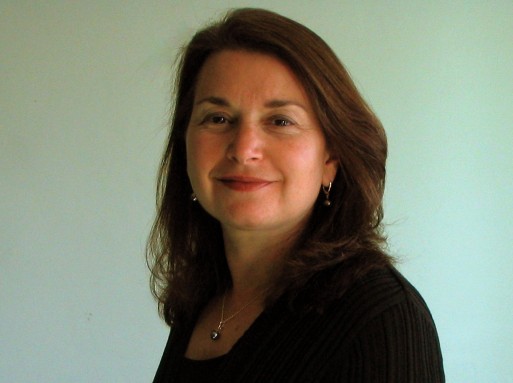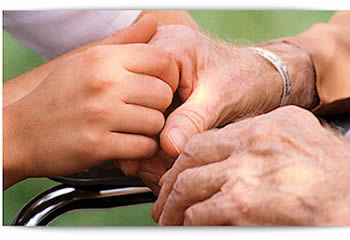Today, SevenPonds speaks with Janet Brush, who is the founder and managing director of Senior Alternatives — a company that is focused on providing comprehensive senior care to residents in the Bay Area. Janet has extensive experience in the field of senior care, including a masters in Gerontology and Social Work. She is also a licensed Fiduciary in the state of California.
Kimberly: How did you know that you wanted to work in the senior care field?

Credit: Janet Brush
Janet: I had been volunteering with seniors in working with the home-delivery meal plans and this came from a love of when I was doing my volunteer work. I left my job as a commercial real estate sales person and I went back to school and got a Masters of Gerontology and a Masters of Social Work and I went from there.
Kimberly: What are the greatest challenges that you face as a care manager?
Janet: Money and the cost of services are so expensive. This is for care management and caregiving and there is really no support from the government through medical. That’s the biggest challenge for us–that our clients don’t have unlimited resources in the United States.
There are other challenges that are more geriatric-based as well. One of the clinical challenges is that seniors are resistant. They don’t want to change. They don’t want to see that they have deteriorated and that they might need help. So our job is to build relationships and figure out the barrier for why they are resistant and that is one of the bigger challenges.
Kimberly: Are there specific techniques that you use to overcome these challenges to get seniors the care that they need?
Janet: Yes! A lot of it is relationship building and getting them to trust us and understand that we are there for their well-being and not just to sell a product. We understand where they are at.
We are very goal focused as well. If a senior has certain goals, we help them understand through discussion that if they are to reach these goals, then there are certain steps that they need to take to take care of themselves.
Kimberly: Are there certain goals that are more common than others among seniors?
Janet: Of course. They want to stay in their homes. It is very rare that you find a senior that doesn’t want to stay in their homes. They also want to remain in a position where they are able to make their own decisions. Most seniors typically want to stay healthy and injury free as well.
Kimberly: How do you know if you or a loved one qualifies for senior care?
Janet: They are typically not able to shop, organize or prepare meals. If they are falling or experiencing confusion or dementia. One of the biggest signs is if they are feeling anxious or stressed.
Kimberly: Do you have any advice for people who are considering to hire a care manager
Janet: Its very important to consider people that have a masters in either social work or gerontology. You want a care manager to have a very specific background in geriatrics. Care management is very psychologically based as well and you want someone that comes from a psychological background of study.
It depends on the case. Some cases are so simple that we put an assistant care manager on it and those people don’t need to have a degree. They can do functions that don’t require a higher level of critical assessment that you would need a masters to complete.
Kimberly: Do you specifically have to be living at home to qualify for home care? Can you receive separate care management if you are living in a nursing home?
Janet: Yes, exactly! We provide caregiving everywhere and you can receive caregiving in alternate environments.
Kimberly: Do you make an effort to work in tandem with other caregivers in alternate environments as well?
Janet: Exactly. We, work in tandem with them to find out what the needs, what is the perception of the facility and what our own observations of the client are. This is just part of the information that we use to customize care plans for our clients.
Kimberly: Is there a difference between care managers and home nurses?
Janet: Nurses are coming in and doing medical evaluations. Care managers look at psychosocial issues, such as how a person is doing in their home, what the risk factors are for a particular person, what issues a person is having from a psychological and physical standpoint, what kind of care plan is needed to address the issues and what resources are needed to address the issues. We do not give them medical attention as a nurse would. Nurses are distinct, in that they typically go into the home when they are checking on a specific medical issue for someone who has left the hospital.
Kimberly: Can you give us an idea of what commonly gets prescribed in care plans?
Janet: The care plan is based on what we call a bio-psychosocial assessment. That really means holistic and encompassing all areas of life. We have a twelve page assessment form that goes through details like mental health, socialization, how they walk, their medical care, their family relationship, how spouses are affected, etc. The care plan is based around what the goal is and what intervention needs to be taken.
An example would be: Client’s wife is overburdened with caring for client. The goal would be to provide enough assistance to wife so that the caregiver burden is decreased. What is the intervention? Client to have caregiver from 9am to 5pm daily. That is what a care plan looks like and we literally write a care plan that way. We look at what resources we can use to work with the issue and solve the problem.
One thing that is really important is that we are always looking for risk factors and we solve them right away. If a woman can’t really walk, we would get her a walker and a caregiver. We also look for the anticipated risk factors. As a care manager, I can tell you that if a client is depressed, then we are very likely to see an increase of falls and an increase in poor nutrition later down the road.
Kimberly: Do you often prescribe activities for seniors as part of a care plan?
Janet: Yes! One important part of our care plan is socialization. The way we approach it is that people have things in their life that they’ve done that provide a sense of pleasure and purposefulness. We get all of those listed and modify them and build upon them to things that they can currently do. We are not just telling them to go to the senior center and play bingo. We are looking for things that really create a passion in them so that it feels good. Everything from taking a walk, to having your favorite piece of cake and cup of tea and talking about your grandchildren are things that touch their soul.
Kimberly: How hands-on are care managers with their senior clients?
Janet: It depends on the client. A lot of the times we might do the initial assessment and the caregiver will take it over from there and they no longer need the care manager, but there is usually still a lot of follow-up. Sometimes there is no one available, and we are much more involved. It’s just a matter of who is there and what kind of support they have.
Kimberly: Are there specific options in place for seniors who don’t have families?
Janet: Their doctors will notice, and they will make a referral. The unfortunate part is that most seniors in that position do not get referrals to us. But good doctors can sense when a senior is overwhelmed, and they can make a referral to us.
Kimberly: Do you have any advice for people in a senior’s life who may be able to make that type of referral?
Janet: Every county has an information and referral line for senior citizens. They are called the area’s Agency on Aging. They have different names in different places. If you put it into Google in your county, then their services will pop up, and there is one available as a federal service in every state and every county to provide information on referral services to seniors. In Alameda County, it’s called the Alameda Area Agency on Aging, and in San Francisco it’s called the San Francisco Commission on Aging.
Kimberly: Are there specific ways that you work with other geriatric professionals to create care plans for clients?
Janet: Yes. Typically there will be a referral to a doctor, to an art therapist, to the home help services. We will often end up coordinating these services. It’s very much a teamwork oriented process. Sometimes there may be an attorney available too for elder law, and we will be discussing issues with them.
Kimberly: Do you have any success stories about seniors that you have helped?
Janet: Yes. A lot. Getting someone into a social work service is magical. It always creates a tremendous change in a person’s life. One of the most memorable success stories is for this woman who had no one. Her husband had died. She had Alzheimer’s. She was living in a home with three homeless people that were living on her living room floor. She was found on her bed with very unpleasant things all over her, and she was taken to a hospital where we were referred to her to get her a care manager. We were able to get her to fix up her house (she loved nothing more than being in her home). We managed and monitored the caregiving, made sure she had good nutrition and medical care. She was ultimately able to live in her home and die in her home. This happens all the time and it’s a wonderful and rewarding profession. There is something magical about what we do. All it takes is to get the referral process started.
Kimberly: What about the families that you’ve helped?
Janet: We often get husbands and wives, and one of them will be very ill, either with dementia or someone will get sick from all of the caregiving burdens. We are able to go in there and allow the spouse to get the rest that they need and take care of the other spouse that is ill. What’s wonderful about that is that you will then see them having a better relationship. The caregiver will be able to sit back and reflect via the spouse again, and they can get back into their relationship a little bit.
Kimberly: Do care plans cover end-of-life services as well?
Janet: Oh yes. The care plans are always changing. When someone is getting towards end of life, the care plan changes and everything is focused around what that person wants. Hospice becomes very involved and everybody understands what the client’s wishes are. There is a team meeting, and it’s really a death and dying meeting, and there is a plan made for up to when a person dies and beyond death, into who needs to be called.
The caregivers are also supported during the death and dying process to make sure that everyone is ready for it. There is a whole change in the care plan when we get to that point.
Kimberly: What is the process for changing a care plan?
Janet: It’s a meeting with hospice, the family, friends (if relevant) and the client. We develop the plan and typically we write it up in the house and put it in a binder. We try to make everyone understand it so that when the time comes we can follow the plan.
Kimberly: How involved are the clients with their care plans during the end of life?
Janet: Care plans focus around them, and we try to give them complete control. We do our best to have them as involved in the care plan as possible. That’s what our focus would be.
Kimberly: Does that change from active to passive involvement?
Janet: A lot of the clients, towards the end of their lives, are very limited in terms of even speaking, but the whole care plan is still based around their lives and goals from when they were able to make those decisions.
Kimberly: Thank you for speaking with us!
Janet: Thank you.

 How Can a Care Manager Improve Quality of Life for Seniors? An Interview with Janet Brush
How Can a Care Manager Improve Quality of Life for Seniors? An Interview with Janet Brush





 How Dare You Die Now!
How Dare You Die Now!
 Debating Medical Aid in Dying
Debating Medical Aid in Dying
 “Help Me, Helen”
“Help Me, Helen”














